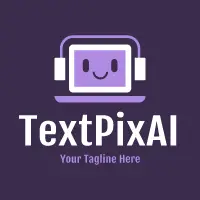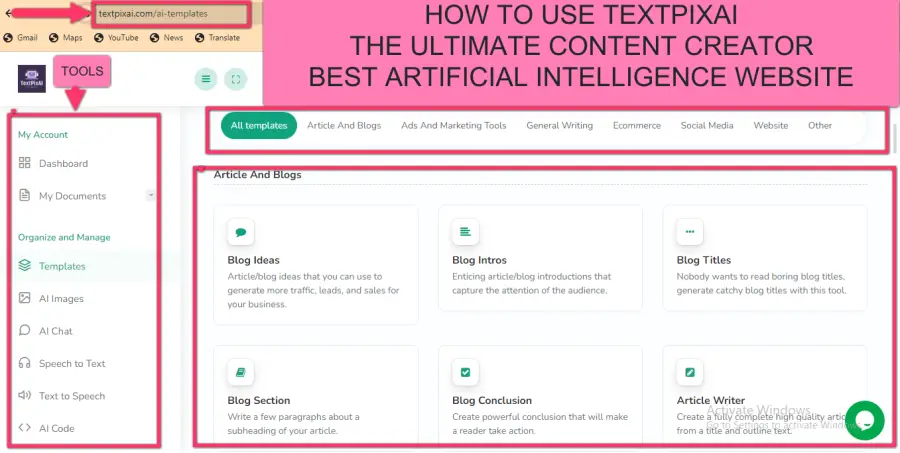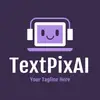AI in Human Resources: Transforming Talent Management and HR Practices
Introduction
In the ever-evolving landscape of the modern workplace, Human Resources (HR) is undergoing a profound transformation. The traditional HR functions of hiring, onboarding, employee engagement, and talent management are being reimagined and enhanced with the integration of Artificial Intelligence (AI). This article takes you on a journey through the pivotal role that AI is playing in HR, exploring its benefits, applications, challenges, and ethical considerations. By the end of this exploration, you'll gain a deep understanding of how AI is reshaping the way organizations manage their most valuable asset—human capital.
You may also like to read:
Supply Chain Optimization with AI: Efficiency and Resilience
The Changing Landscape of Human Resources
Traditional HR vs. AI-driven HR: A Comparative Overview
Human Resources has always been at the heart of organizational success. However, the tools and approaches HR professionals use have evolved significantly over the years. Traditional HR practices relied heavily on manual processes, paperwork, and subjective decision-making. In contrast, AI-driven HR leverages data, automation, and advanced algorithms to optimize HR processes and drive more strategic decision-making.
The HR Challenges of the Digital Age
The digital age has brought about new challenges for HR. The proliferation of data, remote work, and changing employee expectations are just a few examples. Traditional HR methods struggle to keep pace with these developments. The need for faster, data-driven solutions has become imperative.
The Need for AI-Powered Solutions in HR
Enter AI. Artificial Intelligence offers the promise of addressing these challenges head-on. By harnessing the power of AI, HR professionals can transform their operations, making them more efficient, data-centric, and responsive to the needs of both the organization and its employees. Let's delve deeper into the ways AI is revolutionizing HR.
Understanding AI in Human Resources
An Overview of Artificial Intelligence (AI) and Its Relevance in HR
Artificial Intelligence is a multidisciplinary field of computer science focused on creating systems capable of performing tasks that typically require human intelligence. In the context of HR, AI encompasses a range of technologies, including machine learning, natural language processing, and predictive analytics.
The Transformational Potential of AI in HR Processes
AI has the potential to revolutionize HR processes in several ways:
-
Automation: Routine, time-consuming tasks like data entry and paperwork can be automated, freeing up HR professionals to focus on strategic activities.
-
Data-Driven Insights: AI can analyze vast datasets to provide actionable insights for HR decision-making. For example, it can identify trends in employee turnover or predict which candidates are the best fit for a job.
-
Personalization: AI can tailor employee experiences by analyzing individual preferences and needs, leading to higher job satisfaction and retention rates.
How AI Complements Traditional HR Practices
AI doesn't replace HR professionals; it enhances their capabilities. HR professionals still provide the human touch, empathy, and judgment that AI lacks. Instead, AI augments their abilities by providing data-driven insights and automating repetitive tasks.
Benefits of AI in Human Resources
Streamlined Recruitment and Talent Acquisition
Recruitment is a critical HR function, and AI is making it more efficient and effective. AI-driven Applicant Tracking Systems (ATS) can scan resumes, assess candidates' qualifications, and even conduct initial interviews, significantly reducing the time it takes to identify the right candidates.
Enhanced Employee Engagement and Retention
Engaging and retaining employees is a top priority for organizations. AI can help by analyzing employee sentiment through natural language processing (NLP) and identifying factors that contribute to engagement or disengagement. With this information, HR can take proactive measures to boost engagement and reduce turnover.
Data-Driven Decision-Making and Predictive Analytics
AI empowers HR with data-driven decision-making. Predictive analytics can identify patterns in employee behavior and predict future trends. For instance, it can forecast which employees are at risk of leaving the company, enabling HR to take preventive action.
AI-Powered Tools and Techniques in HR
AI-driven Applicant Tracking Systems (ATS)
ATS powered by AI can revolutionize the recruitment process. They scan resumes for keywords, evaluate qualifications, and even analyze candidates' facial expressions during video interviews to gauge their suitability for a role.
Chatbots and Virtual Assistants for Employee Queries
Chatbots and virtual assistants are available 24/7 to answer employees' questions about HR policies, benefits, and procedures. They provide quick and accurate responses, improving the employee experience and reducing the burden on HR staff.
Predictive Analytics for Employee Attrition Prediction
Predictive analytics models can analyze historical data to identify factors contributing to employee attrition. HR can use these insights to develop strategies for employee retention and address issues before they lead to turnover.
AI in Diversity and Inclusion Initiatives
AI can help organizations foster diversity and inclusion by analyzing HR data for biases. It can identify areas where diversity efforts may be falling short and suggest strategies for improvement.
Real-World Applications
AI in Resume Screening and Shortlisting
AI-powered tools can analyze resumes to match candidates with job descriptions more effectively. They can consider factors such as skills, experience, and even cultural fit, leading to more accurate shortlisting.
Employee Onboarding and Training with AI
AI-driven onboarding processes can personalize the employee experience. Chatbots can guide new hires through paperwork and training, ensuring a smoother transition into the organization.
Performance Management and Feedback Automation
AI can automate performance reviews by aggregating data from various sources, such as project outcomes and peer feedback. This streamlines the performance evaluation process and ensures that it is data-driven.
AI-driven Employee Engagement Surveys
Traditional employee engagement surveys can be enhanced with AI-driven sentiment analysis. This enables HR to gain deeper insights into employee morale and areas that need improvement.
Challenges and Ethical Considerations
Data Privacy and Employee Consent
Collecting and analyzing employee data raises questions about data privacy. HR departments must ensure that they have the necessary consents and safeguards in place to protect employee information.
Bias and Fairness in AI-Recruitment
AI algorithms can inadvertently perpetuate biases present in historical data. For instance, if historical hiring decisions were biased, AI models trained on that data may also exhibit bias. Addressing these biases and ensuring fairness in AI-aided recruitment is an ongoing challenge.
The Role of Human Oversight in AI-Driven HR
While AI can automate many HR processes, there's a continued need for human oversight. HR professionals must retain control over critical decisions and use their judgment when interpreting AI-generated insights.
Future Prospects and Innovations
AI and the Future of Remote Work
As remote work becomes more prevalent, AI can play a significant role in enhancing the remote employee experience. Chatbots and virtual assistants can provide remote employees with immediate HR support, regardless of their location.
Personalized Employee Experiences with AI
AI can create personalized employee experiences by analyzing data on individual preferences, career aspirations, and learning styles. This leads to more engaged and satisfied employees.
The Integration of AI in HRIS (Human Resources Information Systems)
HRIS platforms are integrating AI capabilities to streamline HR operations further. This includes automating tasks like benefits enrollment and payroll processing.
Conclusion
AI is not just a technological trend; it's a fundamental shift in the way HR operates. It empowers HR professionals to make data-driven decisions, enhance employee experiences, and address challenges more effectively. As organizations continue to adopt AI in HR, it's essential to strike a balance between automation and human touch, address ethical considerations, and ensure that employees' privacy is respected.
The synergy between AI and HR is reshaping talent management and HR practices. As we look ahead, we can anticipate even more innovations and a more data-driven, personalized approach to HR in the years to come.







